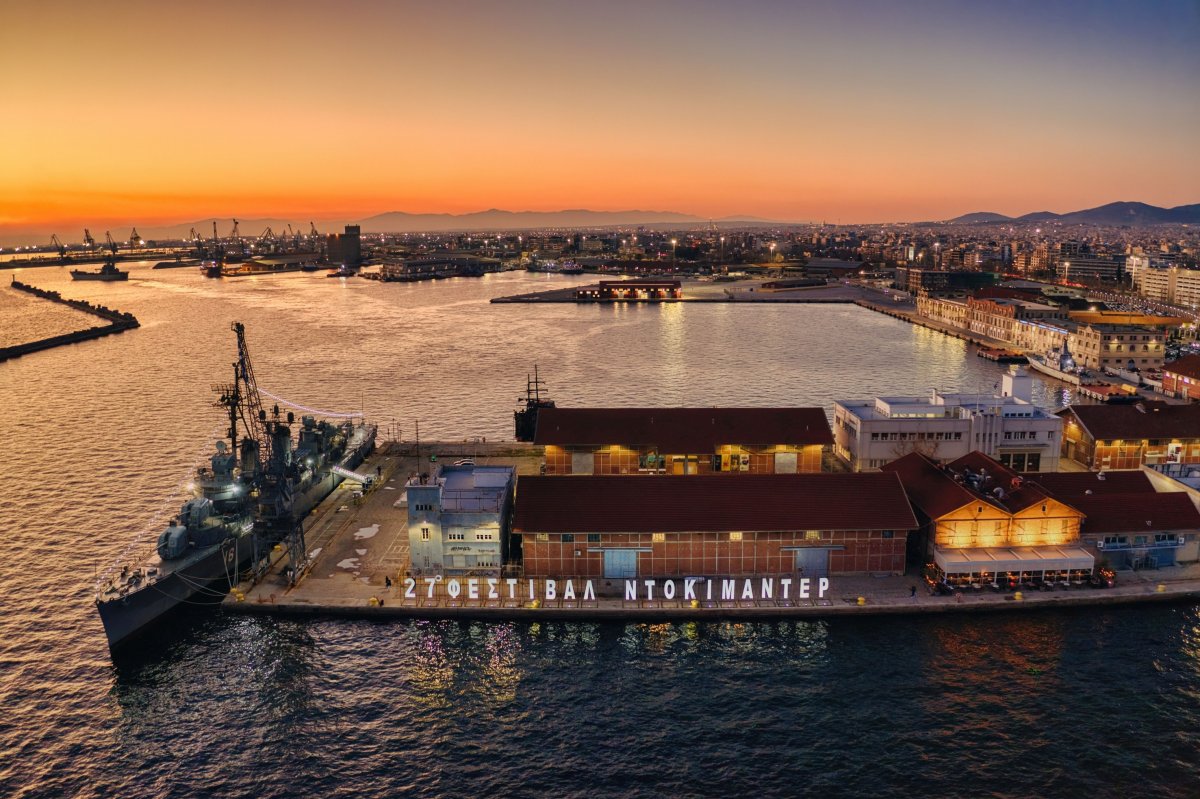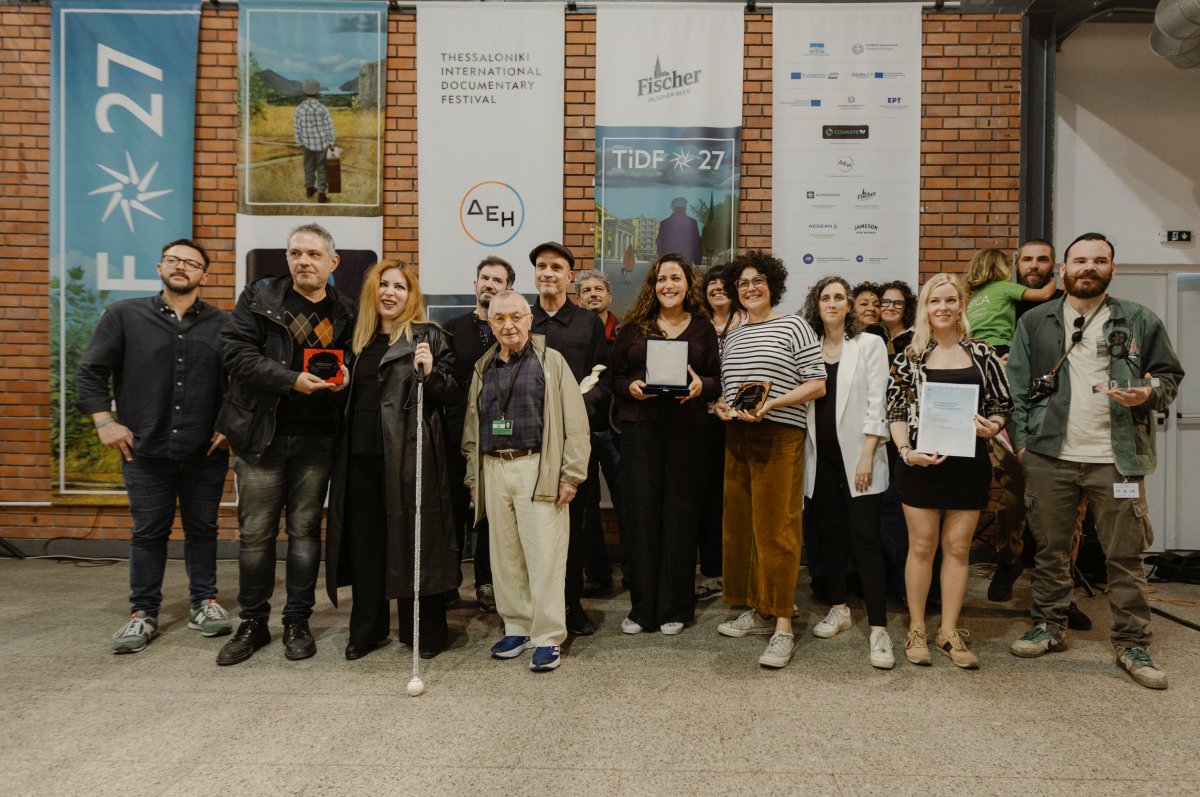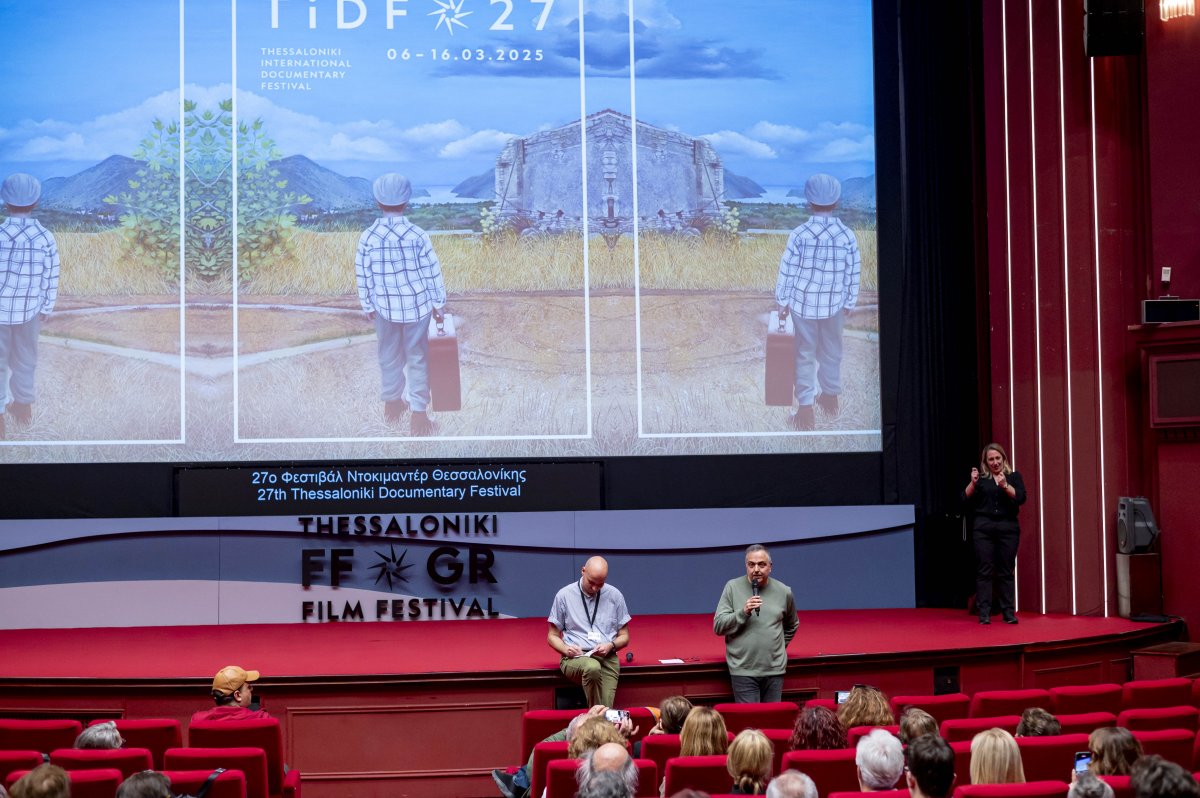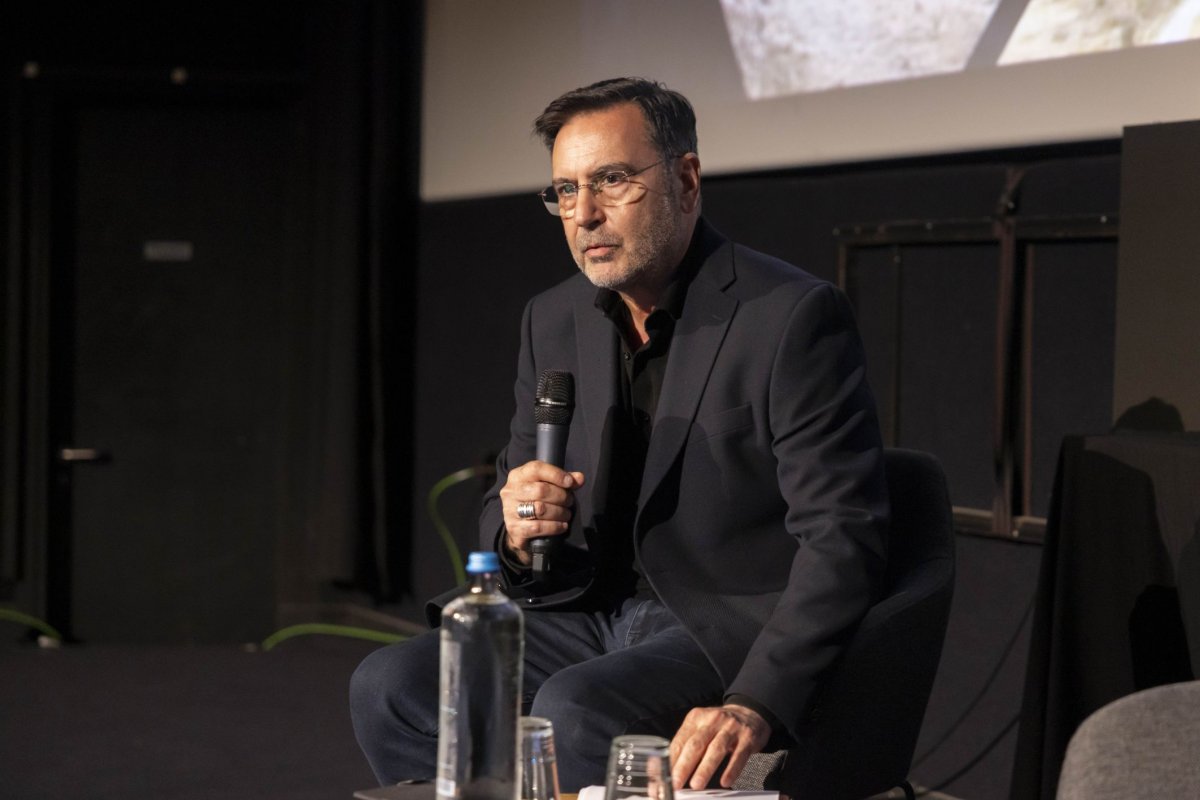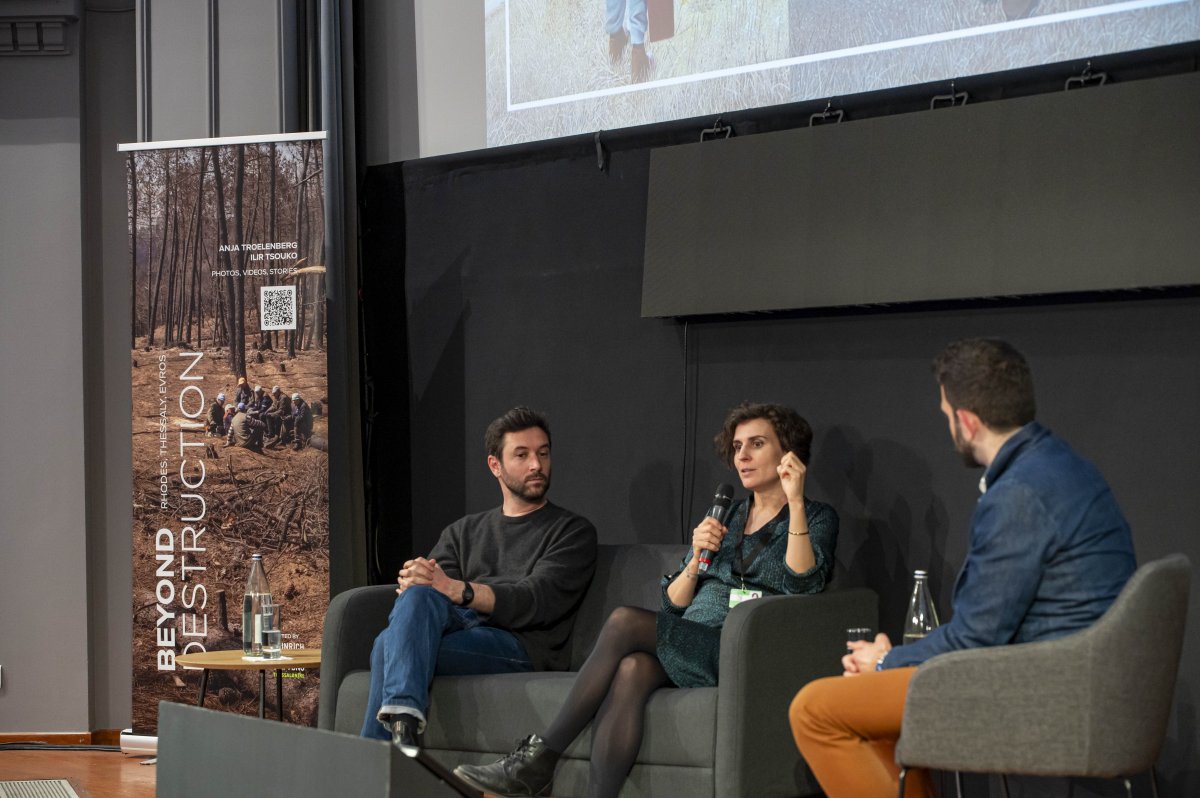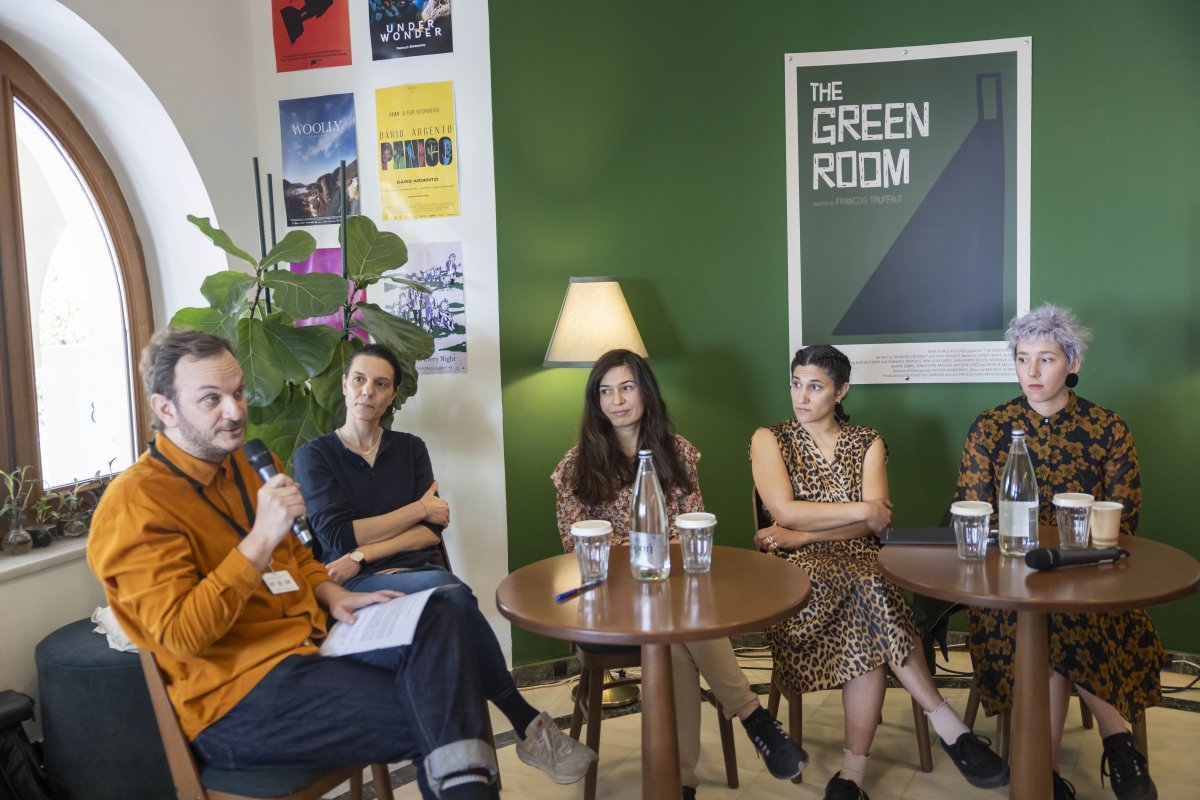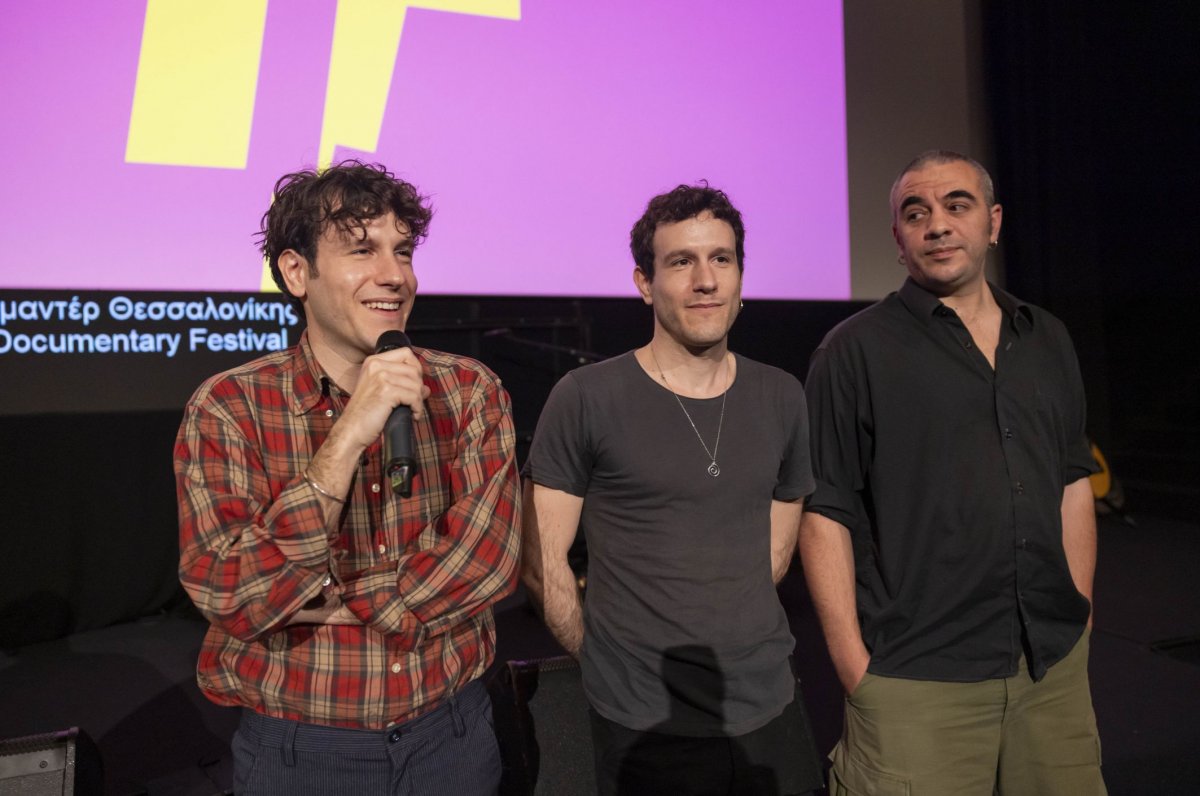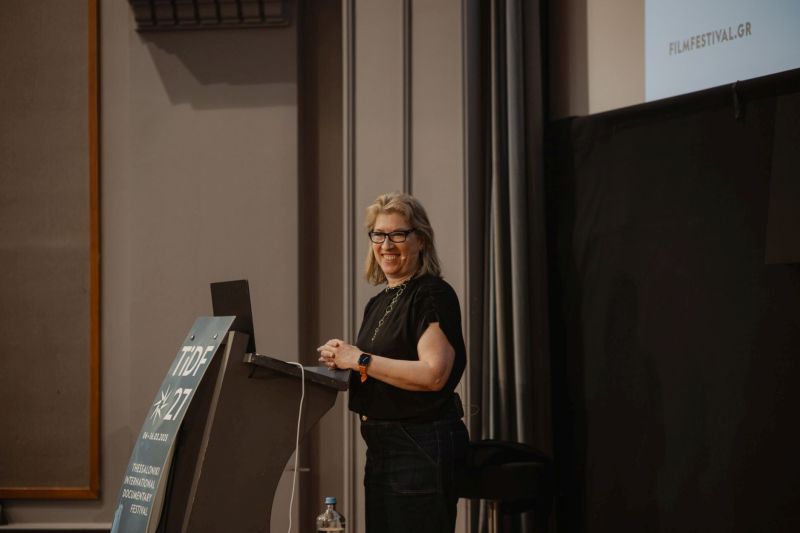Balkan Survey
The cinema of the Balkan countries and the historical reality of the peninsula are inseparable.Whether it is referring to the past or the present, its narratives are heavy with historical memories and contemporary sociopolitical issues. Most of the personal stories told by today’s Balkan filmmakers are permeated by the wounds of the past or the fluidity and insecurity of modern-day social changes that spring precisely from this historical process.Thus, the different viewpoints through which filmmakers tackle the historical developments of the peninsula do not merely express a need for artistic expression, but provide to themselves, as well as to filmgoers, the opportunity to better understand the complex reality of the region, by endowing Balkan cinema with such functions as cultural criticism, the healing of historical wounds, and the negotiation of contemporary social dynamics.
Without making direct references to the civil war in former Yugoslavia, the two films from Serbia – The Trap by Srdan Golubovic and Huddersfield by Ivan Zivkovic – aptly illustrate the consequences the war has had on people’s lives. The Trap, a contemporary film noir, conveys, with stark realism, the collapse of moral values and the economic decline of modern-day Serb society, through the moral dilemma of a helpless family man who is forced to make a life or death decision concerning his child. Post-war disappointment and bitterness also color the personal stories of the protagonists of the theatrically structured Huddersfield, their society still suffering the effects of the previous decade. In Armin, a film by Croatia’s Ognjen Svilicic, even though the story is about a fatherson relationship, the reverberations of the war can be felt during their long silences, as well as in the German film crew’s ffort to take advantage of their troubles, thus underscoring the West’s inability to understand the Balkans. In this meeting of two different worlds, the dignity, but also the love that connects father and son, prove stronger than the desire or attempt to have a new life that would exclude these values. It’s with the same kind of warmth and tenderness, in his film The Tube with a Hat, that Radu Jude examines the feelings and the relationship between another father and son in a nostalgic, naturalistic tale from seventies Romania.The seventies also forms the backdrop for Besnik Bisha’s Mao Tse Tung, a film that uses the naming of a child as a vehicle to satirize Communism in Albania, as seen through the eyes and the way of life of a gypsy.
In California Dreamin’ (endless), the unfinished film by the much-lamented Cristian Nemescu, a long-suffering Romania – following years of deprivation, corruption and bureaucratic dysfunction – meets the arrogant and war-happy USA during the 1999 war in Kosovo.The film is marked by cultural misunderstandings and the trauma of the Americans not showing up when they were awaited as liberators at the end of World War II. Another political trauma – that of the 1980 military coup in Turkey – is the subject of The International by Sirri Sureyya Onder and Muharrem Gulmez, in a tragicomic film featuring a group of traveling players of traditional music.There is a political dimension also to Handan Ipekci’s film, Hidden Faces, about the perpetuation of “honor crimes” committed by men against women and the traditional oppression of women in Turkey, as well as to that of Fatih Akin’s, The Edge of Heaven.This is a story of coincidences and enmeshed lives which, though it touches upon a series of political issues such as the homeland, globalization, the Kurds, and Islamic fundamentalism, is more interested in the relationships between its protagonists and between parents and children, in which the reconciliation of generations proves stronger than death.The element of death lies at the heart of two other films, Upside Down by FYROM’s Igor Ivanov and Warden of the Dead by Ilian Simeonov from Bulgaria.The former recounts the drama of the lost life of a talented young man who, having died, recalls some of his life’s most important chapters, lived out in a society of spiritual degeneration.The latter unfolds in a cemetery – a microcosm of society – that represents a potential metaphor for the situation in the Balkans.
Two purely existential approaches complete this year’s main program. In Destiny, Zeki Demirkubuz returns to a scene from his film Innocence (1997) in order to explore in more detail a story of “doomed” love: two people, whose fates run along parallel lines yet never meet, inspire the director to contemplate on unrequited love and unfulfilled passions. In Egg, Semih Kaplanoglu uses the return of the hero to his birthplace on the occasion of his mother’s death, to speak to us about the relentless passage of time and make us look inwardly, towards a personal examination of our lives.
Finally, the “Balkan Survey” will be presenting a special tribute to the great Romanian auteur Nae Caranfil – the precursor of Romanian Cinema’s “New Wave”. In this way, we would like to honor the most dynamic national cinema in the region at this time.
Dimitris Kerkinos
Total: Found results.
| 16 November 2007 | |||
|---|---|---|---|
| 13:00 | Destiny | STAVROS TORNES | |
| 18:00 | California Dreamin’ (endless) | STAVROS TORNES | |
| 23:00 | Warden of the Dead | STAVROS TORNES | |
| 17 November 2007 | |||
| 11:00 | Upside Down | STAVROS TORNES | |
| 13:15 | Asphalt Tango | STAVROS TORNES | |
| 20:15 | The Edge of Heaven | STAVROS TORNES | |
| 23:00 | The Edge of Heaven | FRIDA LIAPPA | |
| 18 November 2007 | |||
| 13:00 | Dolce far niente | STAVROS TORNES | |
| 17:45 | Mao Tse Tung | STAVROS TORNES | |
| 17:45 | The Tube with a Hat | STAVROS TORNES | |
| 19 November 2007 | |||
| 15:00 | Philanthropy | STAVROS TORNES | |
| 20:00 | Hidden Faces | STAVROS TORNES | |
| 20 November 2007 | |||
| 11:00 | Warden of the Dead | STAVROS TORNES | |
| 15:45 | Egg | STAVROS TORNES | |
| 20:15 | Upside Down | STAVROS TORNES | |
| 22:45 | The International | STAVROS TORNES | |
| 21 November 2007 | |||
| 13:30 | Armin | STAVROS TORNES | |
| 13:30 | The Tube with a Hat | STAVROS TORNES | |
| 18:00 | Don’t Lean Out the Window | STAVROS TORNES | |
| 20:30 | Destiny | STAVROS TORNES | |
| 22:45 | Asphalt Tango | STAVROS TORNES | |
| 22 November 2007 | |||
| 13:00 | The Trap | STAVROS TORNES | |
| 17:45 | Huddersfield | STAVROS TORNES | |
| 22:30 | California Dreamin’ (endless) | STAVROS TORNES | |
| 23 November 2007 | |||
| 11:00 | Hidden Faces | STAVROS TORNES | |
| 13:45 | Dolce far niente | STAVROS TORNES | |
| 16:00 | Mao Tse Tung | STAVROS TORNES | |
| 20:30 | Egg | STAVROS TORNES | |
| 24 November 2007 | |||
| 12:00 | Huddersfield | STAVROS TORNES | |
| 14:00 | The International | STAVROS TORNES | |
| 16:15 | Armin | STAVROS TORNES | |
| 20:15 | The Rest Is Silence | STAVROS TORNES | |
| 23:00 | The Trap | STAVROS TORNES | |
| 25 November 2007 | |||
| 14:30 | The Rest Is Silence | STAVROS TORNES | |
| 14:30 | The War of Independence | STAVROS TORNES | |
| 20:15 | Philanthropy | STAVROS TORNES | |




